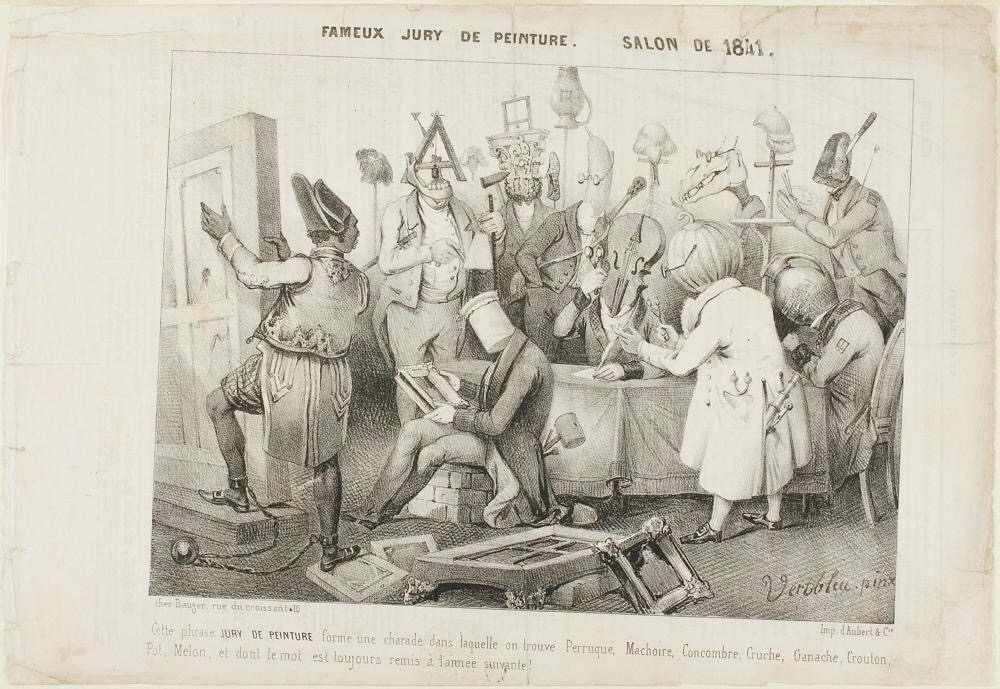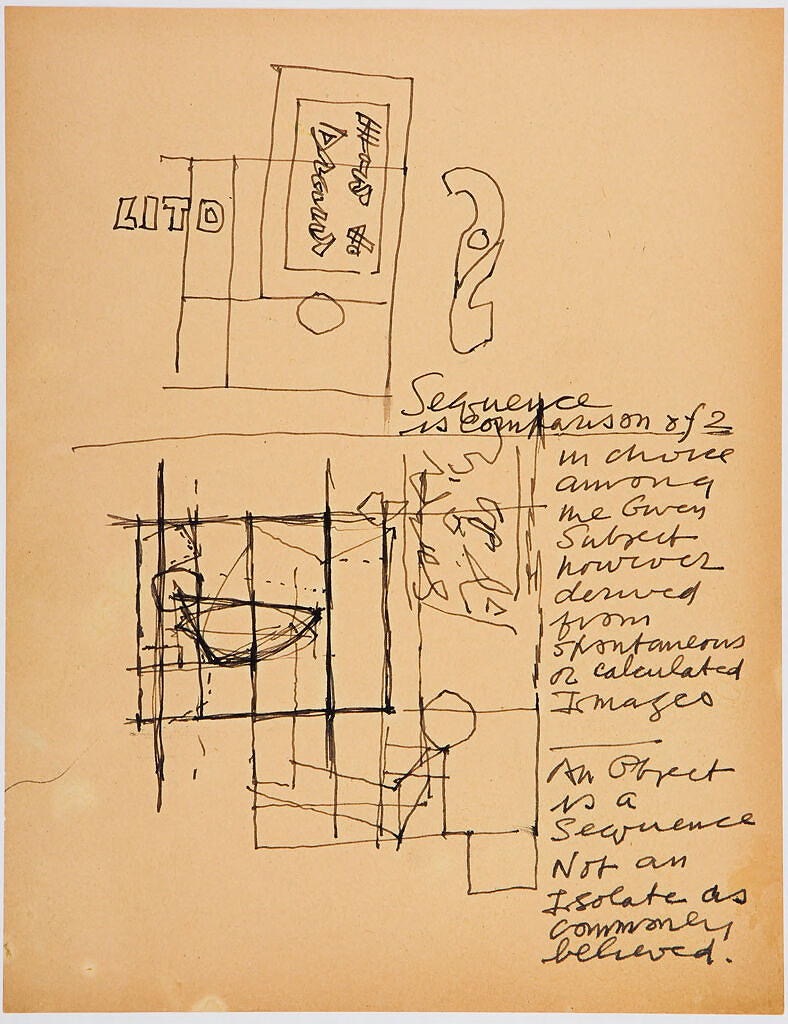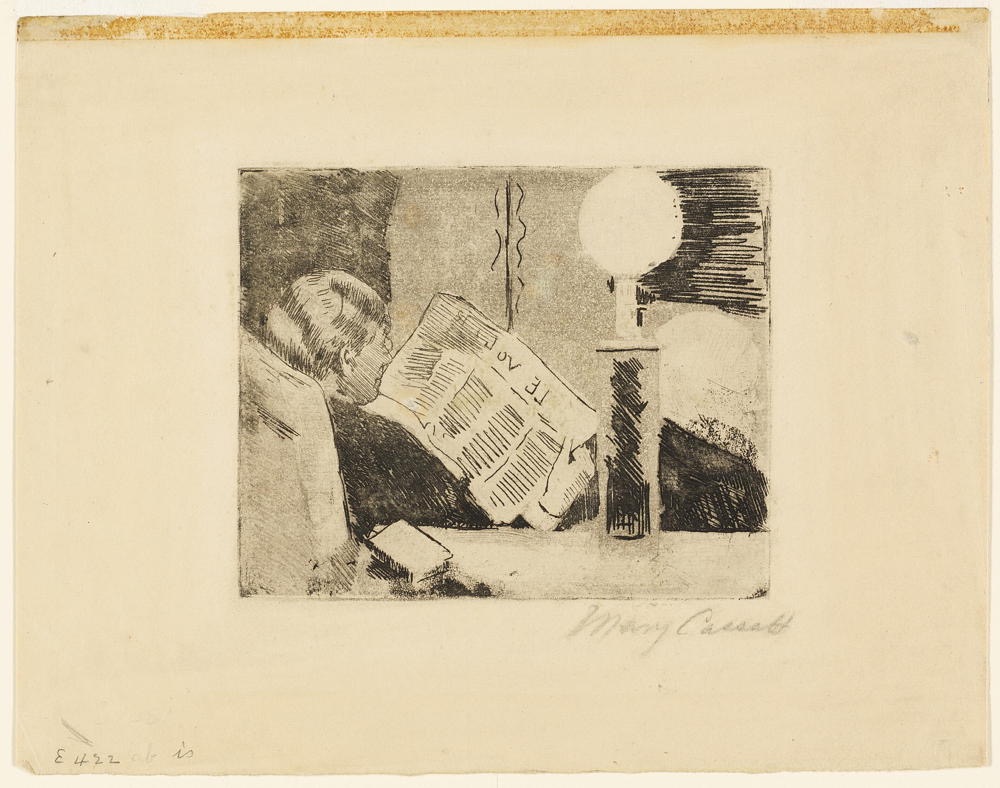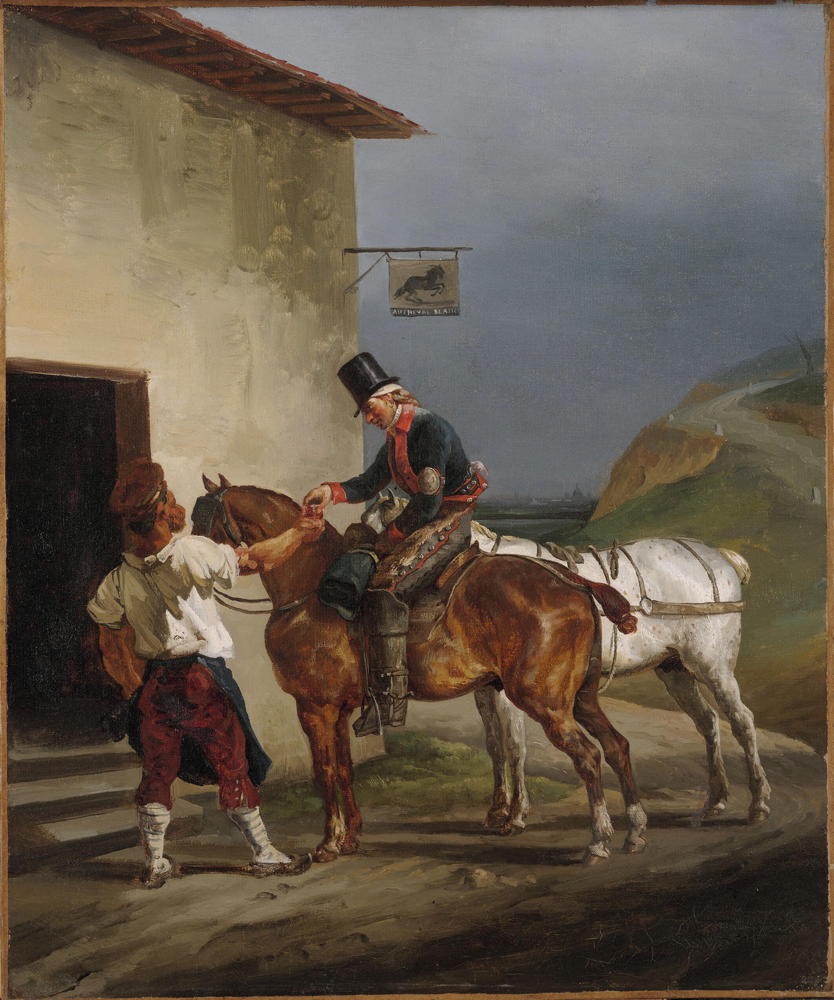Weekly Writing Summary For The Week Ending 10/30/2025

Adolph Menzel: The End (19th century)
This Writing Week almost exhausted October. This author found his stories to be successfully Reassuring thanks to the old and always reliable DoingSomethingDifferent. I found myself writing what, in retrospect, seems like a series of introductions to Decency, as if I needed reminding of its nature and appearance. I noted that Decency tends to be eminently Self-Interested but not self-obsessed. It surprisingly shuns Moral Highground if only because that often violates Decency's first principle, which insists that we're all created equal. I decided that I have been submitting Dispatches from the Front Lines of the War on Decency. I ended this writing week with a different introduction, this one to Decency's Edges, which are many, varied, and not always entirely as expected. Thank you for following along!
——
Weekly Writing Summary
Reassuring
“…as if recovering innocence might prove Reassuring.”
This Decency Story questions my motives. Am I merely Reassuring myself or engaging in something else?
I admit to feeling finite, and I question my motivation for seeking evidence of Decency in life and society. I admit to struggling with my intermittent interest, and I wonder if my search might be little more than an attempt to reassure myself. Observing Decency, or its absence, has an emotional impact on me. I question whether this inquiry brings actual value, or if it’s more about the act of searching itself. As my inquiries progress, they have become less about experiencing optimism and more about dealing with uncertainty and the search for reassurance after losing my innocence.
Clément Pruche: Fameux Jury de Peinture. Salon de 1841 [Famous Jury of Painting. Salon of 1841] (1840, reissued 1841)
——
DoingSomethingDifferent
…I’ll get to rediscover, for the umpteenth time, this self-same tactic for creating lasting change…”
This Decency Story reminds me that I already know the universal strategy for resolving dissatisfaction: DoingSomethingDifferent.
This Decency Story explains how I tend to instinctively force myself through difficulties using an automatic, habitual tactic that brings only a temporary solution and underlying dissatisfaction. I don’t tend to consciously choose this strategy, which doesn’t address the root causes, leading to repeated exhaustion and deepening frustration. The real remedy, discovered after wearing myself out, involves trying something even slightly different, often overlooked because it seems too simple. Small changes, even just in outlook, appear more effective than big, unsustainable efforts. I admit that this pattern seems so ingrained that I regularly forget the lesson and revert to my old, unreliable habits.
Stuart Davis: Study for “Something on the 8 Ball” (1953)
——
Self-Interested
“…its purpose lies in its reach more than in its actual grasp.”
This Decency Story serves as a short meditation on the enlightening Self-Interested.
This Decency Story explores how decency and self-interest often tangle. Genuine Decency involves some self-sacrifice but steadfastly refuses to abandon fundamental self-preservation. I suggest that errors and even indecency frequently result from accident or misjudgment rather than malice. Overly self-centered individuals become isolated, missing vital connections with others, so that what might have started as innocent self-interest devolves into a state of ignorance. Decency might be a fragile, often imperfect, but persistent aspiration rather than a constant state. Its essence appears to lie in the ongoing effort to reach toward Decency, even knowing perfect consistency will always prove to be impossible.
Berthe Morisot: Self-Portrait (c. 1885)
——
MoralHighground
“…Decency itself falls far beneath us.”
This Decency Story takes to task those who inhabit MoralHighground and insist they’re someone’s betters.
In this Decency Story, I express strong contempt, perhaps paradoxically, for people who act morally superior, especially those on the religious right who use their perceived righteousness to judge and demean others. I argue that true Decency requires humility and that public displays of virtue or privilege, such as first-class status or loyalty programs, undermine the principle that all people are created equal. I warn that America’s downfall could stem from collective self-righteousness, leading to the persecution of those with differing beliefs, a fundamental betrayal of Decency.
Mary Cassatt: Reading the Newspaper, No.2 (c. 1883)
——
Dispatch
“How long before we become the bastion of Decency again?”
This Decency Story amounts to a Dispatch from my front line position in this War on Decency.
In this Decency Story, I share personal reflections on living through what I call the “War on Decency,” describing these stories as localized dispatches that highlight narrow experiences in a larger societal conflict. I argue that the true battleground is psychological, fueled by anticipation, paranoia, misinformation, and symbolic acts of aggression rather than open violence. I characterize this “war” as incited by illegitimate actors and heartless policies, resulting in expanding distrust, illegal detentions, and economic hardships. Rising costs and reduced access to basic needs affect daily life, but these struggles reinforce community resolve and faith in Decency. I express hope that resistance to indecency will ultimately make society stronger and more principled.
Théodore Géricault: The White Horse Tavern (1821-1822)
——
Edges
“Decency can be a reliable partner but makes a lousy co-conspirator.”
It seems to me that Decency necessarily maintains sharp Edges. Decency just won’t agree to do some things, regardless.
This Decency Story introduces Decency and his capabilities:
Decency can be an unreliable co-conspirator because he just won’t do some things.
Decency believes it matters how the game gets played. Decency’s always chaperoned and therefore never free to roam just anywhere. He tends to stay close to the straight and narrow.
Short-sightedness disgusts Decency’s sensibilities, for he thinks almost exclusively in possibilities.
Decency cannot tolerate intolerance or forgive malice. Decency judges harshly, but he always judges himself first. 
John La Farge: The Dawn (1899)
——
Asymptosis
As our never-ending porch remodeling project neared completion, the typical Asymptosis settled in. Each completed task spawned another smaller one in what seemed sure to become an ever-expanding infinite series. Zeno visited the job site, trying everyone's patience. Acceptance came hesitantly. It took me two full days to acknowledge that I'd actually finished painting, though touch-up work remains. It took Kurt, our painter, a week to return and fetch his sawhorses, and we lingered an hour in the driveway, savoring our sometimes frustrating relationship in the warming sun. I admitted that I'll be missing his presence. Both cats, Molly and Max, stopped by to sniff his hand and acknowledge his acceptability, even though he smells strongly of cigarettes. I carted trash wood into a burgeoning pile I promised myself I'd cut into fireplace-sized pieces for kindling. I have accumulated enough kindling to last me through a dozen winters. I've accumulated enough learning to last me until the next time I'm struck ignorant, which won't be long in coming. I tore off the construction cardboard to find the porch boards fairly intact and little worse for the eight months of construction work that occurred over them after they were installed. Our master carpenters, Steve and Marco, finished and took their leave, and our contractor and carpenter, Jesse, puttered around to finish up the final caulking and glue scraping. Jesse had promised we'd be able to use the porch for Halloween, and he delivered on his promise. It will be more treat than trick this year after me having to sit on the front sidewalk last year to prevent any goblins from falling through the absent porch deck.
©2025 by David A. Schmaltz - all rights reserved


